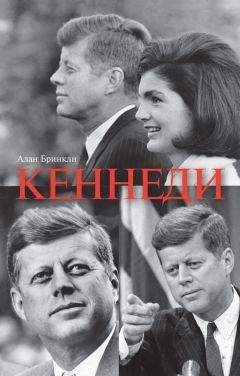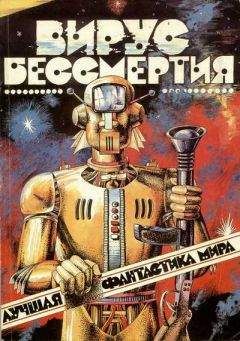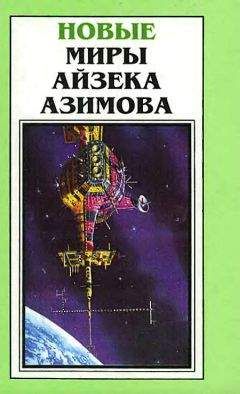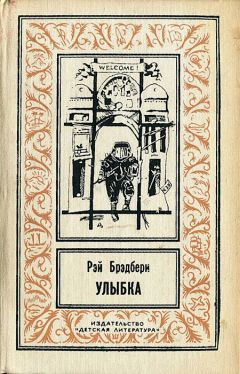265
Schlesinger, Robert Kennedy and His Times, p. 492.
266
Reeves, President Kennedy, p. 337.
267
FRUS, Cuba 1961–1962, p. 606. See also Tim Weiner, Legacy of Ashes: The History of the CIA (New York: Doubleday, 2007), p. 210; Reeves, President Kennedy, pp. 335–37.
268
«Vienna Meeting: Memos of Conversation,» June 4, 1961, JFKL; «Vienna Meeting: Background Documents,» n. d., 1961, JFKL; David R. Inglis, «Ban H — Bomb Tests and Favor the Defense,» Bulletin of the Atomic Scientists, November 1954, pp. 353–56.
269
Richard A. Falk, Samuel S. Kim, and Saul H. Mendrovitz, eds., Disarmament and Economic Development (Washington, D.C.: World Law Fund,1966), p. 46.
270
Beschloss, The Crisis Years, pp. 213–14.
271
J. P. Weisner and H. E. York, «National Security and the Nuclear Test Ban,» Scientific American, October 1964; Shane J. Maddock, «Defending the American Way and Containing the Atom: Ideology and U. S. Nuclear Proliferation Since 1945,» in Rosemary B. Mariner and G. Kurt Piehler, eds., The Atomic Bomb and American Society: New Perspectives (Knoxville: University of Tennessee Press, 2009), pp. 121–52.
272
William Rust, Perpetual Crisis: The American Experience in Laos, 1954–1961 (Lexington: University of Kentucky Press, 2012).
273
«The President’s News Conference of March 23, 1961,» PPP — JFK, 1961, pp. 213–15.
274
Time, May 5, 1961.
275
Reeves, President Kennedy, pp. 112, 689.
276
Charles de Gaulle, Memoirs of Hope: Renewal and Endeavor (New York: Simon and Schuster, 1971), p. 256.
277
Reeves, President Kennedy, p. 112.
278
Sorensen, Kennedy, pp. 396–99, 591.
279
«Memos of Conversation,» June 4, 1961, Vienna, JFKL; «President’s Meeting with Khrushchev, Vienna, June 3–4, 1961, Laos: Talking Points,» Briefing Book, JFKL.
280
Fensch, The Kennedy-Khrushchev Letters, pp. 244–45. См. также Roger Hilsman, To Move a Nation: The Politics of Foreign Policy in the Adminitration of John F. Kennedy (New York: Doubleday, 1967), p. 134; Lawrence Freedman, Kennedy’s Wars: Berlin, Cuba, and Laos (New York: Oxford University Press, 2000), p. 475 n; «Memos of Conversation,» June 4, 1961, Vienna, JFKL; «President’s Meeting with Khrushchev, Vienna, June 3–4, 1961, Laos: Talking Points,» Briefing Book, JFKL; A. J. Langguth, Our Vietnam: The War, 1954–1975 (New York: Simon and Schuster, 2000), p. 132.
281
Rust, Perpetual Crisis, pp. 18–56, 342–45.
282
Beschloss, The Crisis Years, p. 349.
283
«Telegram from the Department of State to the Embassy in the Soviet Union, December 30, 1961,» in Fensch, The Kennedy-Khrushchev Letters, p. 146. См. также Beschloss, The Crisis Years, p. 352.
284
Time, January 5, 1962.
285
«Annual Message to the Congress on the State of the Union, January 11, 1962,» PPP — JFK, 1962, pp. 5–6.
286
Ibid.
287
Ibid.; Wall Street Journal, February 27, 1961.
288
Schlesinger, Robert Kennedy and His Times, pp. 404–5.
289
New York Times, April 12, 1962; Walter Heller to Lloyd Ulman, «Reuther’s Letter to the President,» April 12, 1962, Council of Economic Advisers, JFKL; «The President’s News Conference of April 11, 1962,» PPP — JFK, 1962, pp. 315–16.
290
Time, April 20, 1962; Business Week, April 21, 1962.
291
Reeves, President Kennedy, p. 296.
292
Reeves, A Question of Character, p. 332; Jim Bellows, The Last Editor (Kansas City, Mo.: Andrews McMeel, 2002), p. 88.
293
Benjamin A. Javits to JFK, June 11, 1962, JFKL; Roy Harrod to Seymour Harris, May 9, 1962, Council of Economic Advisers, JFKL; Bradlee, Conversations with Kennedy, p. 77; Reeves, President Kennedy, pp. 296–302.
294
«Why the Market Fell,» May 29, 1962, Council of Economic Advisers, JFKL.
295
New York Times, May 29, 1962; «The Present Decline in Perspective,» «Why the Market Fell,» «Possible Government Action,» May 29, 1962, Council of Economic Advisers, JFKL; Walter Heller to JFK, May 31, 1962, Council of Economic Advisers, JFKL.
296
«Annual Message to the Congress on the State of the Union, January 14, 1963,» PPP — JFK, 1963, pp. 11–13.
297
Economist, May 19, 1962; Walter Heller to JFK, December 16, 1962, Council of Economic Advisers, JFKL; Schlesinger, A Thousand Days, pp. 630–31.
298
Dallek, An Unfinished Life, pp. 375–76, 475–80.
299
William Chafe, Private Lives/Public Consequences: Personality and Politics in Modern America (Cambridge, Mass.: Harvard University Press, 2005), pp. 122–23.
300
Ibid.
301
Reeves, President Kennedy, pp. 288–89; Athan Theoharis, From the Secret Files of J. Edgar Hoover (New York: I. R. Dee, 1991), pp. 40–41; Seymour M. Hersh, The Dark Side of Camelot (Boston: Little, Brown, 1997), pp. 298–325.
302
O’Brien, John F. Kennedy, p. 763; David Reynolds, Summits: Six Meetings that Shaped the Twentieth Century (New York: Basic Books, 2007), pp. 201–2.
303
Alistair Horne, Harold Macmillan, 1959–1986, vol. 2 (New York: Viking, 1989), p. 512; Reeves, President Kennedy, pp. 242–43.
304
Reeves, President Kennedy, p. 43.
305
Dallek, An Unfinished Life, p. 705.
306
«First Debate, September 26, 1960,» in Kraus, The Great Debates, pp. 349–50.
307
«Inaugural Address, January 20, 1961,» PPP — JFK, 1961, p. 1.
308
«Annual Message to the Congress on the State of the Union,» January 30, 1961, PPP — JFK, 1961, p. 22.
309
Reeves, President Kennedy, p. 169.
310
Franklin H. Williams, «The Shifting Negro Vote,» Frontier, January 1961, pp. 4, 13–14.
311
Hyman H. Bookbinder, «Appointment of Qualified Negro to Business Advisory Council,» April 14, 1961, JFKL; Carl Brauer, John F. Kennedy and the Second Reconstruction (New York: Columbia University Press, 1977), pp. 75–76.
312
Harris Wofford notes, «MLK,» n. d., JFKL. See also Reeves, President Kennedy, pp. 100–101.
313
Frank J. Munger and Richard F. Fenno, National Politics and Federal Aid to Education (Syracuse, N.Y.: Syracuse University Press, 1962) p. 132.
314
Harris Wofford to Kenneth O’Donnell, October 4, October 9, 1961, JFKL; Robert A. Wallace to Harris Wofford, November 22, 1961, JFKL.
315
Executive Order 10590, January 19, 1955, 20 Federal Record, 409; Executive Order 10925, March 6, 1961, 26 Federal Record 1977.
316
John L. Moore to Heads of Federal Agencies, «Nondiscrimination in Employment,» March 29, 1961, JFKL; JFK to A. Philip Randolph, February 17, 1961, JFKL; Carlisle P. Runge, Assistant Secretary of Defense, to Frederick G. Dutton, April 10, 1961, JFKL; Robert A. Wallace, Assistant Secretary to the Secretary of the Treasury, to Fred Dutton, April 7, 1961, JFKL; L. D. Battle to Frederick G. Dutton, April 11, 1961, JFKL.
317
Helen Fuller, Year of Trial: Kennedy’s Crucial Decisions (New York: Harcourt, Brace, 1962), p. 29.
318
«Report of the Attorney General to the President on the Department of Justice’s Activities in the Field of Civil Rights,» December 29, 1961, JFKL. See also Franklin D. Reeves to Clarence T. R. Nelson, March 20, 1961, JFKL; «Summary Memorandum of Executive Action on Civil Rights,» n. d., 1961, JFKL; U. S. Commission on Civil Rights press release, September 9, 1961, JFKL.
319
«Summary Memorandum of Executive Action on Civil Rights,» n. d., 1962; «Executive Order: Equal Opportunity in Housing,» November 20, 1962, 27 Federal Record, 11527; JFK to Roy Wilkins, November 27, 1962, JFKL; JFK to Robert Weaver, November 27, 1962, JFKL; JFK to Whitney Young, November 27, 1962, JFKL; Jack Conway, «Draft Reply to Correspondence from Mayor C. Ben Holleman, West Palm Beach, Florida,» JFKL; Brauer, John F. Kennedy and the Second Reconstruction, pp. 131–35.
320
Progressive, vol. 2, no. 49, p. 16.
321
«Summary of Civil Rights Progress, January 20 through October 1961,» n. d., 1961, JFKL; Lee C. White, «Civil Rights Achievements Since January 1962,» December 13, 1962, JFKL; Brauer, John F. Kennedy and the Second Reconstruction, pp. 63, 127.
322
Taylor Branch, Parting the Waters: America in the King Years, 1954–1963 (New York: Simon and Schuster, 1988), pp. 143–205, 271–73; William Chafe, Civilities and Civil Rights: Greensboro, North Carolina, and the Black Struggle for Freedom (New York: Oxford University Press, 1981), pp. 111–18.
323
Time, June 2, 1961; Raymond Arsenault, Freedom Rides 1961 and the Struggle for Racial Justice (New York: Oxford University Press, 2006), pp. 11–54, 90–182.
324
New York Times, May 15, 1961; Time, May 26, 1961.
325
Schlesinger, Robert Kennedy and His Times, p. 288.
326
New York Times, May 24, 30, 1961; Time, June 2, 1961; Arsenault, Freedom Rides 1961, pp. 140–85.
327
Thomas, Robert Kennedy, p. 129.
328
Arsenault, Freedom Rides 1961, p. 194. См. также Bryant, The Bystander, p. 278.
329
«Statement by the President Concerning Interference with the ’Freedom Riders’ in Alabama,» May 20, 1961, PPP — JFK, 1961, p. 391.
330
Bryant, The Bystander, pp. 270, 275.
331
«Special Message to the Congress on Urgent National Needs,» May 25, 1961, PPP — JFK, 1961, pp. 396–406.
332
«Statement by the President Upon Signing the Plans for Progress,» Washington, D.C., July 12, 1961, JFKL.
333
«Improvement in Non-White Industrial Emplo-yment — During ’Plans for Progress’ Program, May 15, 1961–December 15, 1961, December 15, 1961–June 15, 1962,» JFKL.
334
«Results of ’Plans for Progress’ Program — (A) One Year Results and (B) Six Months Results,» JFKL.
335
«Remarks of the President Before Participants in Signing of Plans for Progress in the East Room,» June 22, 1962, JFKL.
336
Robert Troutman Jr. to JFK, June 30, 1962, JFKL; JFK to Robert Troutman Jr., August 22, 1962, JFKL.
337
Brauer, John F. Kennedy and the Second Recon-struction, pp. 147–51, 214–16.
338
Martin Luther King Jr., «Letter from a Birmingham Jail,» in Why We Can’t Wait (New York: Signet, 1964), pp. 64–84.
339
«Radio and Television Report to the Nation on the Situation at the University of Mississippi,» September 30, 1962, PPP — JFK, 1962, pp. 726–27.
340
Aaron Henry to JFK, n. d., 1962, JFKL; «Executive Order 11053: Providing Assistance for the Removal of Obstructions of Justice in the State of Mississippi,» September 30, 1962, JFKL; Jack Rosenthal, «Some Possible Ideas for the President’s Remarks to the United States Attorneys,» October 9, 1962, JFKL; JFK to C. B. Powell, October 11, 1962, JFKL; Amsterdam News, October 6, 1962; Brauer, John F. Kennedy and the Second Reconstruction, pp. 180–203.
341
Branch, Parting the Waters, pp. 782–85. См. также Dallek, An Unfinished Life, p. 595.
342
King, «Letter from a Birmingham Jail,» pp. 64–84.
343
Bryant, The Bystander, p. 381.
344
Ibid., p. 4. See also Thomas, Robert Kennedy, p. 243.
345
Diane McWhorter, Carry Me Home: Birmingham, Alabama — The Climactic Battle of the Civil Rights Revolution (New York: Simon and Schuster, 2001), p. 463.
346
Bryant, The Bystander, p. 394.
347
McWhorter, Carry Me Home, pp. 463–64; Bryant, The Bystander, p. 394.
348
Washington Post, February 13, 1963; Reeves, President Kennedy, pp. 464–65.
349
Schlesinger, A Thousand Days, p. 959.
350
Ibid., pp. 959–66; Brauer, John F. Kennedy and the Second Reconstruction, p. 240.
351
«Radio and Television Report to the American People on Civil Rights,» June 11, 1963, PPP — JFK, 1963, pp. 468–71.
352
Brauer, John F. Kennedy and the Second Reconstruc-tion, p. 264.
353
Reeves, President Kennedy, p. 520.
354
Schlesinger, Robert Kennedy and His Times, pp. 346–49. См. также Brauer, John F. Kennedy and the Second Reconstruction, p. 247.
355
«Civil Rights — Public Accommodations, Hearings of the Committee on Commerce,» U. S. Senate, S 1732 (July 1, 1963), p. 25.
356
Washington Post, August 29, 30, 1963.
357
New York Times, August 29, 1963; Time, August 30, 1963.
358
William F. Theford to JFK, September 18, 1963, JFKL.
359
Harold Chase and Allen H. Lerman, eds., Kennedy and the Press: The News Conferences (New York: Crowell, 1965), p. 518; Lee C. White to Burke Marshall, September 18, 1963, JFKL; Lee C. White to Charles C. Diggs Jr., September 24, 1963, JFKL; Brauer, John F. Kennedy and the Second Reconstrution, p. 310.
360
John Richard Snyder, John F. Kennedy: Personality, Policy, Presidency (New York: SR Books, 1988), p. 62. См. также Brauer, John F. Kennedy and the Second Reconstruction, p. 310. Похожая аргументация появилась в 2006 у британского журналиста Ника Брайанта (Nick Bryant), автора книги The Bystander, p. 11. Брайант, как и Дирксен, резко критиковал Кеннеди за то, что тот не спешил вмешиваться и тем самым упустил лучшую возможность. «Кеннеди частично виновен в кризисе в межрасовых отношениях», — писал он. — «Имея в начале 1960-х историческую возможность определять путь развития страны, который бы приблизил миллионы чернокожих американцев к свободе, Кеннеди предпочел политику бездействия»
361
Schlesinger, Robert Kennedy and His Times, p. 649. См. также Gus Russo and Stephen Molton, Brothers in Arms: The Kennedys, the Castros, and the Politics of Murder (New York: Bloomsbury, 2008), pp. 157–58, 168–71.
362
Reeves, President Kennedy, p. 341.
363
Ernest R. May and Philip D. Zelikow, eds., The Kennedy Tapes: Inside the White House During the Cuban Missile Crisis (New York: W. W. Norton, 2002), p. 10.
364
Michael H. Hunt, Crises in U. S. Foreign Policy (New Haven: Yale University Press, 1996), p. 255.
365
Robert Dallek, Flawed Giant: Lyndon Johnson and His Times, 1961–1973 (New York: Oxford University Press, 1998), p. 53; Abram Chayes to McGeorge Bundy, «International Law Problems of Blockade,» September 10, 1962, JFKL; «Briefing Paper for President’s Press Conference — Subject: NATO Shipping and Cuban Trade,» September 13, 1962, JFKL; May and Zelikow, The Kennedy Tapes, p. 10; «The President’s News Conference,» September 13, 1962, PPP — JFK, 1962, pp. 674–75; Elie Abel, The Missile Crisis (New York: J. B. Lippincott, 1966), pp. 6–80.





